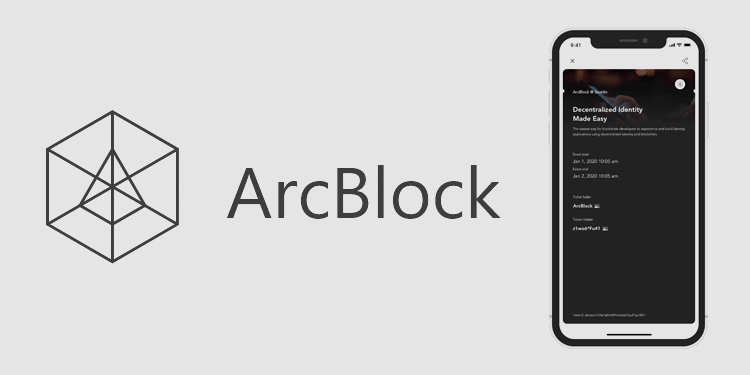ArcBlock, a blockchain development platform and decentralized identity provider, today released a new user experience demo that showcases how users buy and sell tickets; enables companies and developers to add the ability for their users to buy and sell tickets supporting B2C, B2B, and peer-to-peer transactions.
The purpose of ArcBlock’s demo is to show live applications of decentralized identity through interactive demos, developer-ready tools, and training. The ticket demo can be built in less than 5-minutes using ArcBlock’s Blocklets and its blockchain platform.
Ticket Marketplace Solution
Today’s digital ticket is mired with problems with many users being taken advantage of by ticket companies who often charge excessive fees, have hidden, complex purchasing processes that are based on a wide range of factors that impact price and availability, are nearly impossible to resell outside of using the ticket providers preferred vendor who charges additional fees, and potential to purchase fake, scalped or fraudulent tickets that are useless at the event. And for many users, there is little to no transparency in the ticket process.
It’s easy to see why blockchain technology represents a significant upgrade over today’s tickets. Blockchain technology enables a better user experience by creating a source of truth for the tickets and give everyone complete transparency into the ticket creation and purchasing process.
With these new tickets, businesses and developers can also assign smart contract rules to their tickets and ensuring that each ticket is unique, immutable and nearly impossible to fake. One of the reasons for this is that ArcBlock’s tickets are NFTs, or non-fungible tokens. Non-Fungible Tokens allow anyone to create and own an asset while also supporting different market values for that asset.
So, if you have two different tickets for different events, both tickets actually are similar items, but the values they represent are very different. One event gets you into a high school basketball game, whereas the other gets you into a Los Angeles Lakers game and the tickets are not transferable.
While blockchain can help eliminate fraud, expedite the security entry process, and make it easy to create and allocate tickets, it requires decentralized identity in order to make it become a viable asset that a user can buy, sell and exchange.
Using the power of decentralized identity combined with blockchain, these tickets become assets that are owned by the user and cannot be forged or faked. The user can easily use, exchange or even resell the ticket directly from their decentralized identity wallet.
Blockchain-powered ticketing use-cases:
- Planning a high-demand event
- Has an event with strong ticket resale potential
- Wants to control who gets access to re-sell tickets
- Enable your tickets to be available when many customers want to purchase them at once
- Want to avoid fraud or scalped tickets
- Increase user privacy
- Increase security against data breaches
